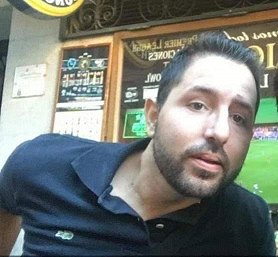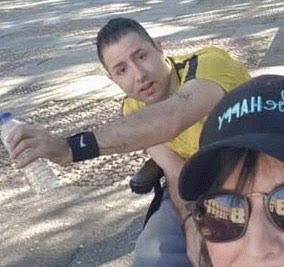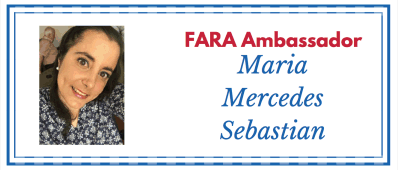 Name: Óscar Muñoz Soguero
Name: Óscar Muñoz Soguero
Age: 34 years
Where do you call home? Villanueva de la cañada (Madrid, Spain)
Education (degree(s): Bachelor of Pharmacy and Nutrition from Alfonso X University
Who do you live with? I live with my parents in Villanueva de la cañada, and on school days, I live in the Rehabilitation Center for people with disabilities in Salamanca.
What is a typical day for you? II get up at approximately 8 o'clock. I receive specific technical aids, I carry out a web page creation course. In between, I do my therapies: Speech therapy, Physiotherapy, Occupational therapy. In the afternoon, I go to the gym and I do therapeutic yoga exercises. I also interact with colleagues.
 How long have you known you are living with FA? I had symptoms at 15 years old and at 20 years old the genetic tests they confirmed it for me.
How long have you known you are living with FA? I had symptoms at 15 years old and at 20 years old the genetic tests they confirmed it for me.
Are there any others with FA in your family? No
Describe your transition from walking to walker/wheelchair. When I was 15 years old, I used crutches. Then, when I was 20 years old, I used a walker. And since I was 23 years, I used a wheelchair
What do you like to do to stay active and what type of exercises work for you to stay strong? I really like swimming. After exercise, you feel much better both physically and mentally.
Do you have any hobbies or special interests? I like to watch soccer because it entertains me and of course I’m a Real Madrid fan.
What is a good trick to make daily life easier? The good trick that makes my life easier are the technical aids, bars, armrests ... (they make my life easier).
When FA gets you down, what do you think/do to feel better? I never think about FA. I have adapted myself to my situation.
What is one way living with FA has POSITIVELY affected your life? For me, it is a challenge to try to get what I want. I do not consider asking for help an act of weakness.
What advice has someone with FA given you that encourages and inspires you? Appreciate the small and true situations in life.

What is the best advice YOU could give to a person who has been newly diagnosed with FA? It’s ok, this is a temporary situation to which you have to adapt.
What is the first thing you want to do when a cure/treatment to FA is found? Travel and see the world.
"I have FA but FA doesn't have me." What does this statement mean to you? How do you live your life in the face of adversity? Energy and enthusiasm since thanks to the fact that I live and am from Spain, society is gradually becoming aware of this type of minority and neurodegenerative diseases thanks to research with gene therapy led by Dr. Antoni Matilla at IGT (Instituto German Trías y Pujol , Badalona, Spain) carrying out the StopAF project.
Interviewed by:



